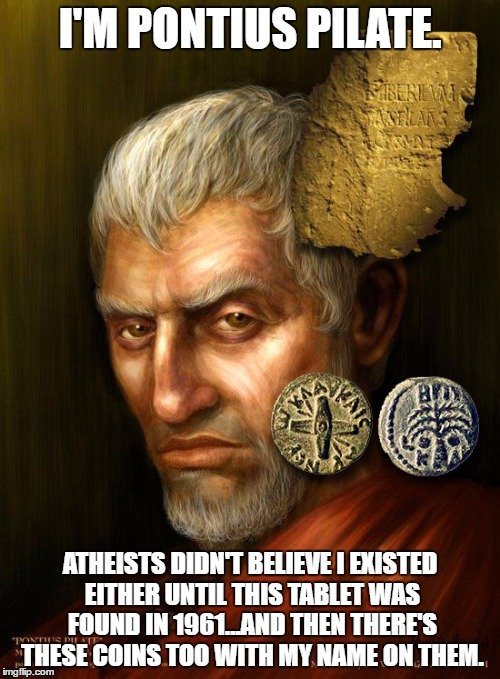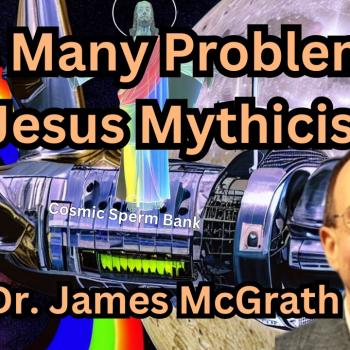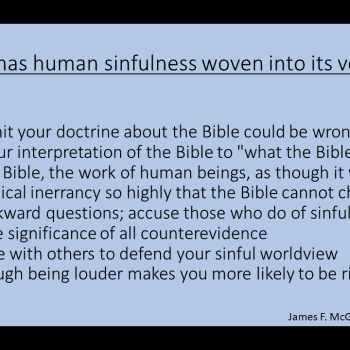
This meme was drawn to my attention in a comment on an earlier post. It focuses too broadly on atheists in general, and it is simply incorrect about what the coins say. But its main point retains some validity nevertheless. While it may be appropriate to withhold judgment about a matter if the evidence seems insufficient, the attempt to argue that because someone is only mentioned in the New Testament, therefore they are not historical, simply does not work. History shows this, in the case of Pontius Pilate (among others).
To be clear, the reverse stance is also problematic. I have read the claim on numerous occasions that, since historians eventually found evidence for Pilate, then you can trust everything the Bible says. That isn't how historical study works, and it is a deceptive tactic that ignores those instances when counter-evidence to Biblical accounts have been found.
Most historians recognize that the compilation we call the Bible contains not only a range of kinds of literature, but even within individual works, a range of kinds of material, ranging from largely historical to pure literary creation.
Mythicist dogmatists and Christian fundamentalists are not at polar opposite ends of the spectrum, except on the trite matter of what they insist they know. Their approach is an all-or-nothing one that are mirror images of one another, two sides of the same coin.
Historians, on the other hand, are supposed to deal in a nuanced manner with evidence, and to recognize that each piece of evidence must be assessed separately and on its own terms.
The fact that there was a historical Pontius Pilate, for instance, does not mean that he actually had the conversations depicted in the Passion narratives in the canonical or any other Gospels. From the perspective of historians, the fact that none of the followers of Jesus would have had access to the events or the participants in them, coupled with the character of Pilate as we know of it from other sources, leads historians to be skeptical of many of the details in the Gospel accounts.
And so the heart of the matter is this: mythicism – the complete dismissal of the historicity not just of accounts but of the individual portrayed in them – is as illogical and indefensible as claims of Biblical inerrancy – the complete acceptance of the historicity of everything in the Bible because the existence of individuals mentioned in it has been confirmed.
Neither mythicism nor Christian fundamentalism is engaged in the practice of history. But both share a willingness to appeal to historians' conclusions when it suits them in an attempt to bolster their ideologically-driven all-or-nothing stance.
And when historians and scholars object to this misuse of their work, mythicists and inerrantists typically respond in the same way: by insisting that the academy is in fact conspiring to cover up the truth or infested with an ideology that blinds us to the truth.
And the irony is that the one side will claim that academics are mostly atheists, and the other will claim that academics are mostly Christians, and neither will see the irony that their opponents are mirror images of themselves, making absolute claims that are not merely implausible, but also simply not the kind of thing that historical study provides.















